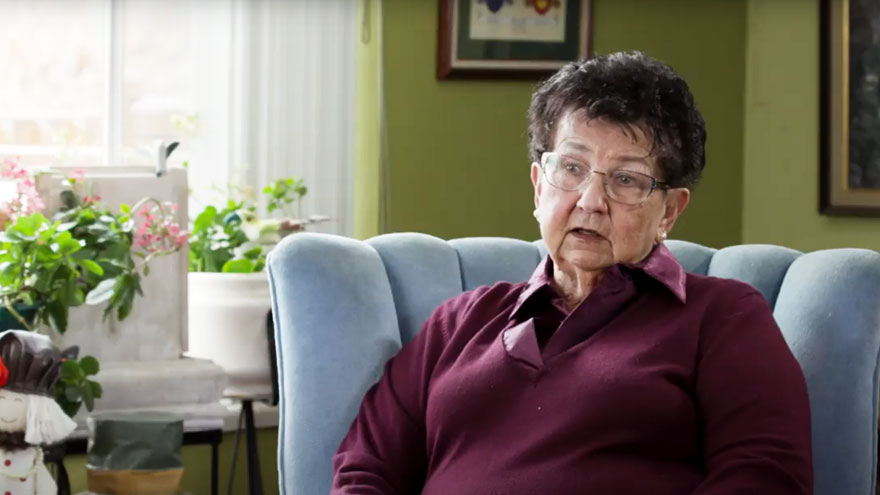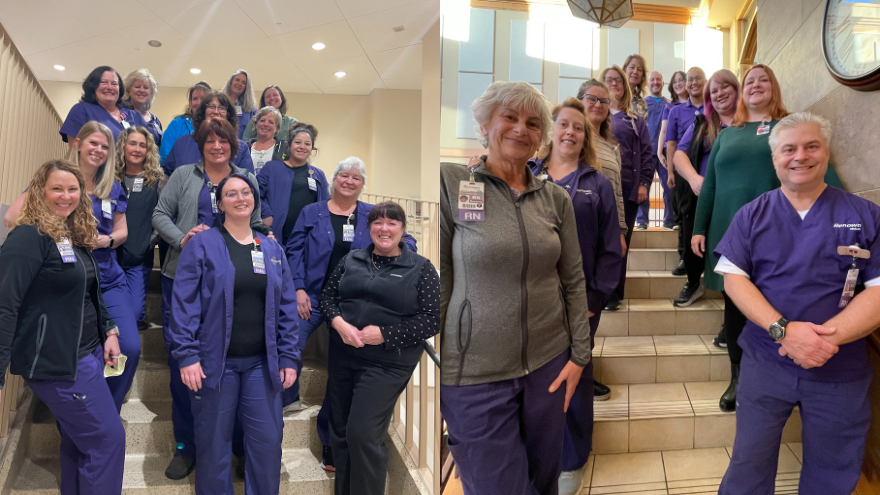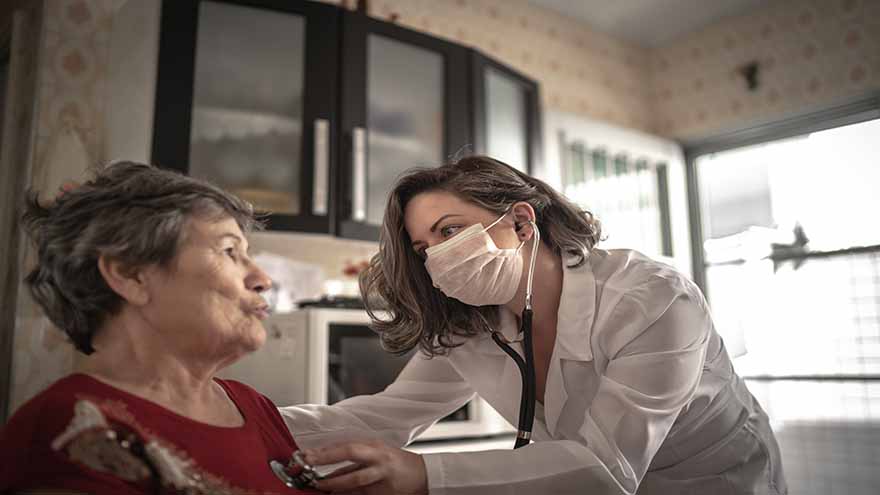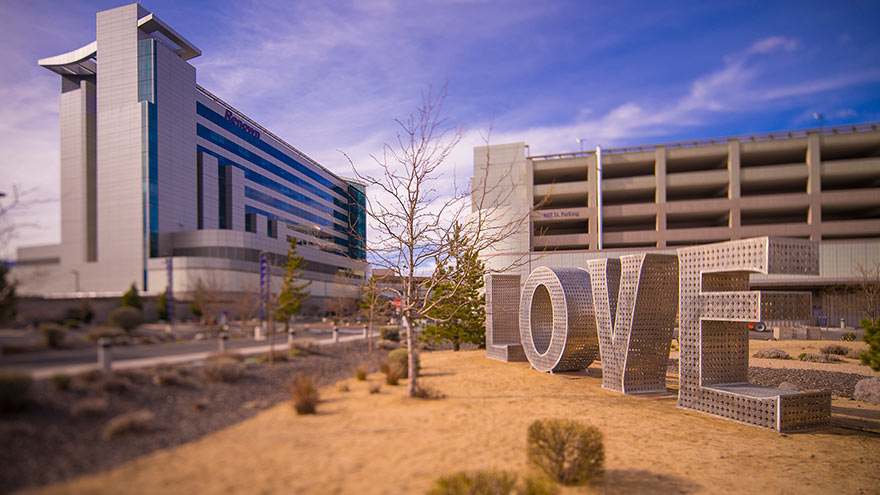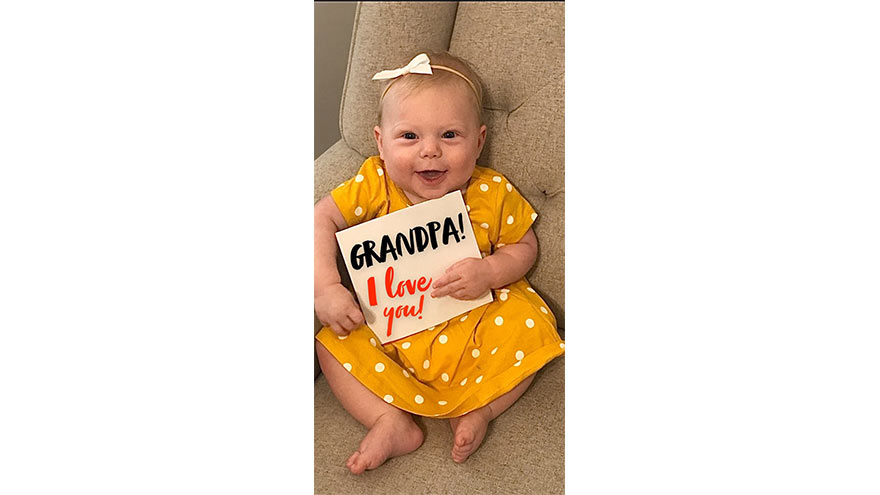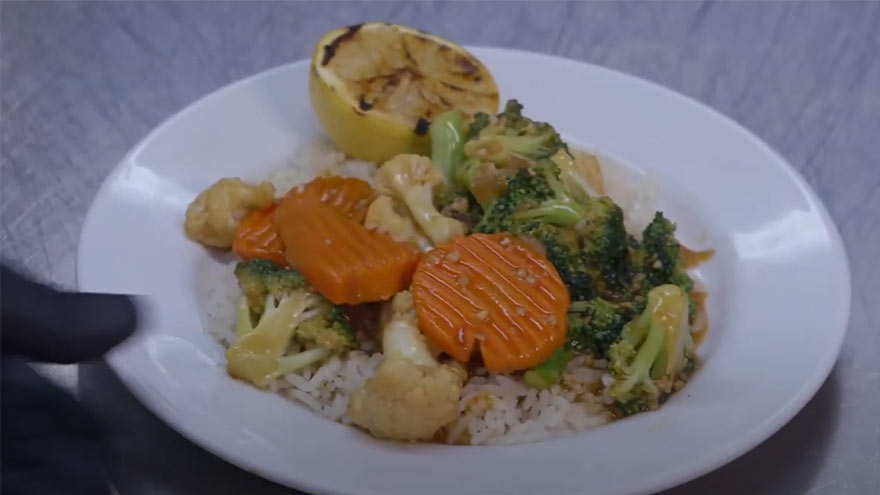Search
-
CEO Blog: Improving Health Through Genetics and Big Data
Renown Health President and CEO Tony Slonim, MD, DrPH, discusses efforts nationwide to develop a more effective and efficient way to deliver care. explains the benefits of Renown Health’s population health study with the Desert Research Institute and 23andMe.
Read More About CEO Blog: Improving Health Through Genetics and Big Data
-
How Do I Prepare for Surgery?
Renown’s team of nurses and respiratory therapists discuss what you need to know before undergoing surgery, including fasting guidelines and how to improve recovery. There are several things to know before you undergo surgery, including steps to prepare at home in advance of your procedure. Fasting Guidelines: No solid foods eight hours prior to surgery You may have clear liquids three hours before your surgery. Clear liquids include water, apple juice and lemon or lime-flavored soda water (not cola). In addition, do not chew or smoke tobacco (regular or e-cigarettes) after midnight the night before your surgery, unless instructed by your doctor or anesthesiologist.
-
True Grit Healing a Cowboys Heart
At 85, James Domingos is still enjoying life as a cowboy, thanks to a transcatheter aortic valve replacement. Always rolling with the punches when it comes to life, 85-year-old James Domingos faced his health issues with the same grit. For many years, he roped cattle for friends and rounded up horses for the Bureau of Land Management. In recent years, a pacemaker controlled the rhythm of his heart, but didn’t slow him down. “We used to be able to take walks for 15 minutes in one direction and take the dog,” says Domingos’ wife, Joy. “Then it got to be less and less.” Tests at Renown Health revealed a heart valve was nearly closed. His heart doctor, Jake Ichino, MD, FACC, FSCAI, suggested a transcatheter aortic valve replacement, known as TAVR, which repairs a heart valve without removing the damaged valve. The procedure is recommended for patients who are at high risk for open heart surgery.
-
Why Can't I Eat Before Surgery?
If you’re having surgery on your shoulder, why does it matter what’s in your stomach? We asked Dr. Matthew Hoberg to explain more about pre-surgery directives, including fasting. If you have an upcoming surgery, your care team likely gave you instructions to fast before your procedure. But why? We asked Matthew Hoberg, M.D., medical director of Renown Surgical Services, to explain why it’s important to forgo food and drinks before surgery. Why are patients instructed to fast before surgery? Regardless of surgery type or site, we want the stomach to be empty before having anesthesia, because anesthesia can reduce your body’s ability to protect and prevent food or acids from the stomach from entering the lungs. Normally, your body is able to prevent this, but anesthesia medicines make it harder for your body to do so. When food or liquids from the stomach get into the lungs, doctors call it “aspiration.” This is rare, but can be dangerous if it does happen. Solid foods and liquids leave the stomach at different rates too. Solid food takes longer to empty from the stomach than liquids, so the time to stop eating solids (eight hours) is longer than that for clear liquids (two hours). The body has energy reserves to produce needed nutrients and fuel during fasting. Recently, studies have shown it is important to stay hydrated and have some carbohydrates in clear liquids up to two hours before surgery, so clear liquids are allowed until two hours before surgery. There are also special rules for babies and young children who need surgery. For example, you may give breast milk up to four hours before surgery. If your baby drinks formula, you should stop six hours before surgery, and all solid foods you should stop eight hours before. Your child’s doctor or nurse will give you exact instructions. What if you show up for surgery and have broken the no-eating rule? Will surgery be re-scheduled? If patients have not followed the fasting guidelines, surgery will be postponed or rescheduled due to the possible increased risk associated with not having an empty stomach. The exception would be emergency surgery that cannot be delayed in which case special precautions are taken to help prevent anything from getting into the lungs. What other pre-operative rules should be followed to the letter? All instructions given to patients before their surgery or procedure should be followed. There are specific medical reasons behind all the instructions and they are designed for safety — to minimize risks, lower complications like infections and enhance the recovery process to help patients get back to normal as quickly as possible. Also, many patients ask if they should continue taking medications before surgery. The answer is: It depends. Your doctor or nurse will tell you which medicines you should take and when. Some medicines need to be stopped before surgery. But for others, it’s important you keep taking them as usual. You may also get new medicines to take before surgery. You may be asked to take some medications before surgery as part of advanced pain management protocols. If you need to take medicine right before your surgery, you can take it with a sip of water.
-
Want to Recover from Surgery Faster? Get Moving!
To be on the move is a scary concept when you’re recovering from surgery. But did you know getting up and at ’em could be the key to a quicker recovery, post-surgery? Here’s some expert insight from Renown Surgical Services. The team at has some news for you: Rest and movement are important to prevent serious complications. Here are some tips about how to get mobile after your procedure — and why it’s fundamentally important. Tip 1: Start Simple While you’re in bed, move your legs and feet up and down. Be sure to ask the nurses to help you get out of bed and into the chair for all your meals, or walk to the bathroom when needed. If you feel up to it, take a walk in the hallways with the nursing staff. Tip 2: The Sooner, the Better This may be surprising, but too much rest is not necessarily a good thing. The old saying “You use it, or you lose it” rings very true to maintaining the strength needed to get yourself out of bed. Beginning the mobility process early in your hospital stay will not only help you maintain strength and function, it may also help you get home sooner. Though it may seem counter intuitive, lying in bed all day can delay your healing time and cause serious complications to arise, including pneumonia, deep vein thrombosis or blood clots, pressure ulcers and sometimes constipation. Tip 3: Mobilize Your Support System Getting out of bed, sitting in a chair for meals and walking around your room or hospital unit can help reduce your risk of complications. The nursing staff will help you out of bed the same day of your surgery if it’s cleared by your doctor. Tip 4: Safety First The nursing staff is here to keep you safe, so make sure you call them for assistance getting out of bed. Even if you think you can do it yourself, use your call light to notify the nursing staff you are ready to get up and move. In addition, new medications can sometimes impair our judgment, balance and safety, so it’s always better to have help even though you may not need it. This is also why you may have a “bed alarm” on, to remind you to call for help and keep you safe while you are recovering. Tip 5: Move, But Manage Your Pain Many people find that getting up and moving actually helps their pain, rather than making it much worse. Taking the right amount of medication at the right times will minimize your pain and help you to get moving. Your care team will work with you on how much pain medication is right to manage any postoperative pain, with the goal for you to be comfortable enough to be able to move and gradually increase your activity each day. Tip 6: Maintain that Momentum at Home Mobility doesn’t end once you’re discharged from the hospital. It’s key to keep moving to maintain health and function. When you first arrive home, it’s crucial to take frequent movement breaks throughout the day. Increase activity as it becomes more comfortable, and be sure to ease back into an active daily routine. If you have concerns about your mobility once home, be sure to discuss this with your doctor at your follow-up appointment. Renown Surgical Services | 775-982-3993 Ask your doctor if you have any questions about your medical condition or the specific surgical procedure planned, or contact the team at Renown Surgical Services. Learn More
Read More About Want to Recover from Surgery Faster? Get Moving!
-
Happy and Healthy Life After Heart Valve Replacement Surgery
Watch what happens when a family’s matriarch finds out she has to have heart valve replacement surgery. Thanks to supportive cardiac care, she is now back to health and enjoying her extended family with a healthy heart. Marilyn O’Gorman has a full heart full of love: Just ask her six children, 15 grandchildren and six great grandchildren. However, in 2009, tests showed that same heart had medical issues. So her close family was by her side when she underwent heart valve replacement surgery. O’Gorman says her heart doctor, Athan Roumanas, MD, FACS, put her at ease about the surgery. “You’re very nervous — you’re scared,” says O’Gorman. “You don’t know: Are you going to come out of it? Is it going to work?” Heart Valve Replacement Surgery Comes with an Unexpected Question O’Gorman was asked to choose whether she’d prefer a pig or a cow valve — ultimately inquiring of Dr. Roumanas which one he’d choose for his own mother. “And he said, ‘Well, probably pig,'” she recalls. “And I said, ‘OK, I’ll oink for you.’ And that’s how I got that, and he did a wonderful job.” O’Gorman continues her care at the Renown Institute for Heart and Vascular Health, so she can stay heart healthy and spend her free time with the many generations of family in her life.
Read More About Happy and Healthy Life After Heart Valve Replacement Surgery
-
Department Spotlight: Surgical Preadmission
Heading into surgery of any kind can bring along feelings of intimidation. With a best-in-class surgery team at Renown Health, patients rest assured that they are in the most capable hands for their entire procedure from start to finish – and while the physical preparation is vital, mental and emotional preparation is equally as important to ensure each patient has a smooth and comfortable experience. The Surgical Preadmission department (a.k.a. “preadmit”) at Renown Regional Medical Center and Renown South Meadows Medical Center is a dynamic and compassionate group of nurses, case managers, chart managers and more who are dedicated to guiding each patient through the surgical process. With extensive knowledge and expertise under their belt, the teams are equipped to make a genuine difference in the health and well-being of all patients, for all surgeries, at all times of the year. Surgery Starting Ground The Surgical Preadmission teams are crucial aspects in the successful outcome of every surgical procedure. Comprised of skilled healthcare professionals, this department is dedicated to providing comprehensive support and care before heading into the pre-operating room. “Our job is to prepare every patient for surgery, make sure all their pre-surgery testing is done, ensure they understand their fasting and medication instructions, have had their questions answered, have a ride home and know what to expect during surgery and after so their recovery can go smoothly and without complications,” said Debra Bennett, RN, Supervisor of Surgical Preadmission at Renown Regional. “Each patient is unique, so each experience is different.” Our preadmit nurses are the masters of communication, directing thorough assessments – including medications, tests and clearances – and addressing any questions or concerns patients may have, never missing the opportunity to inform them of exactly what they will expect in surgery. “I do a complete history on every patient while giving them detailed pre-operating instructions and helping them answer any questions to the best of my ability,” said Nancy Hilts, Surgical Preadmission RN at Renown Regional. “I am proud to be able to help allay their fears and concerns using my 30 years of pre-op experience. I offer an avenue for them to feel comfortable opening up to me.” “We always tell patients that they have great surgeons and a fantastic team that will be watching over them and taking care of them every step of the way,” added Jon Capallupo, Surgical Preadmission RN at Renown South Meadows. “We also give them plenty of educational handouts and video content, in addition to verbal instruction, to ensure they are as prepared as possible.” The nurses then pass the reigns onto the chart managers, who prepare the charts for surgery and ensure all documentation is up-to-date before sending them to the pre-operative team. The expert surgical case managers also step in to prepare a thorough discharge plan, along with reviewing pre-operation orders for status, consent, codes and more. The team does several of these initial visits virtually, and they are looking forward to soon phasing all preadmit case manager preliminary visits into a virtual model. From assisting the pre-op and post-anesthesia care unit (PACU) teams with discharge planning concerns to helping on the outpatient side with anything from oxygen equipment and catheters to transportation issues and those experiencing homelessness, our pre-admit case managers are always up to the challenge. "We are true patient advocates, alleviating concerns and fears along the way,” said Mary Carl, RN, Case Manager at Renown Regional. “Just to name a few things we do on a daily basis, we see our total joint and non-weight bearing patients during their preadmission appointment, so they are aware of the medical equipment they need and if it is covered by insurance; provide education for Aspira catheters and gastrostomy tubes; advocate to ensure tube feeding and dressing changes are set up for hospice and home health patients; and escalate concerns of patient safety to ensure a safe discharge.” In the midst of it all, there is never a dull moment in the preadmit teams. At Renown Regional alone, the preadmit professionals see more than 1,600 patients a month – and each one has a hyper-personalized experience with their very own preadmit team. “Many times, we are the first impression a patient has on our organization; after all, we touch more than 97 percent of patients that are scheduled for surgery, cardiac catheterization lab procedures or interventional radiology,” said Amy Schler, Surgical Preadmission RN at Renown Regional. “We also collaborate with many other departments in the hospital as well, from surgeons and anesthesiologists to case managers and nurse navigators. Our work in preadmit impacts the entire surgical process.” Holding a diverse array of experiences, our preadmit department plays an integral role in our commitment to providing the highest quality of care to every patient. Knowledge is Power Heading into surgery feeling fearful and worried is normal for any patient. However, how would you feel knowing that each individual member on your preadmit team has, on average, 23-25 years of experience in the field? This is the reality for our Surgical Preadmission department – and they put that vast knowledge to great use to bring a sense of calm to patients. “Our team members have worked in various departments within our organization, and they bring a wealth of knowledge that we share with each other, and most importantly, with our patients,” said Amy Schler, RN. “If you have hundreds of years of nursing experience, you can speak not only as a nurse but also as a patient. It allows you to give a more personal perspective on what patients can expect in their recovery. Being able to assess their emotions and provide feedback to our pre-op and PACU teams help the patient have a better experience.” “Many of our nurses have close to 40 years of experience each, and they have an extremely large knowledge base since we see patients from newborn to geriatric and from easy procedures to complex surgeries,” added Debra Bennett, RN. “Another great aspect of our team is the varied nursing backgrounds we all hold – surgery, pre- and post-op, labor and delivery, pediatric intensive care, cardiology, gastroenterology, urology, cardiac cath lab, home health and everything in between. Communication between departments is so important!” All members in this department, regardless of which clinical area they came from, surgical or non-surgical, can easily translate their skills into the work they do in preadmit – and they only continue to grow. “As a surgical preadmission nurse, I have used my years of experience as a nurse in surgical services,” said Terri Delatorre, Surgical Preadmission RN at Renown Regional. “I started as a floor nurse with orthopedics for 12 years, and then I worked with the PACU for 11 years. This has helped me give great understanding and care to our surgical patients.” “Because we have staff with such a vast knowledge base, we can rely on our years of working within our organization to help alleviate fears that the patient may have,” added Amy Schler, RN. We can prepare them for what to expect in pre-op and PACU and educate them on what to expect post-op, including any barriers they may face. For example, mastectomy patients may not realize they will not be able to raise their arms for 7-10 days post-op, and total knee patients have to navigate stairs and housing access. Helping patients think about barriers at home that they may not have thought about helps them prepare prior to surgery, enhances their healing and provides a better surgical experience.” The preadmit team works closely with our best-in-class surgeons and anesthesiologists, continuing to grow their expertise along the way while learning alongside our talented providers. For instance, when it comes to our Renown South Meadows preadmit department, anesthesiologist Nariman Rahimzadeh, MD provides excellent guidance for the entire team on state-of-the-art anesthesiology practices. “I am very proud of the work we do with Dr. Rahimzadeh,” said Lisa Closson, Surgical Preadmission RN at Renown South Meadows. “Together, we ensure patients are safe for both surgery and anesthesia.” Despite the challenges that come their way – whether it be changes to process and workflow to navigating support for patients after they leave the surgery floor – the preadmit team cleverly uses their collective wealth of knowledge to bring hope and comfort to all patients. “Our nurses are such warm, caring and compassionate humans that do their best to ease any fears and anxieties patients may have,” said Debra Bennett, RN. The Pride of Preadmission The pride of our preadmit team lies in their ability to make a positive impact on all patients they serve. To them, their work is not just a job – it's a calling. And they do it all while working together to elevate their team and performance. “Our team is most proud of the quality of care we provide to our patients and our abilities to troubleshoot difficult situations to ensure they have a great surgical experience here at Renown,” said Mary Carl, RN. The entire department supports each other by working collaboratively and relying on each other’s expertise to provide the best possible care for patients. They understand that their success as a team depends on their abilities to support and help each other. “Our team is awesome here at South Meadows,” said Jon Capallupo, RN. “We can turn to each other for support, and we all work very well with each other. I am glad to be a part of this team.” “I am proud of how well all of us in preadmit works with each other every day,” added Lisa Closson, RN. “We try to make patients feel comfortable from the moment they arrive to the time they leave the department.” The pride that our preadmit team expends goes beyond their departmental limits – these team members are also trusted teachers. They work closely with cancer nurse navigators to teach weekly classes for patients who have been newly diagnosed with breast cancer, coupled with lymphedema prevention and education classes. The team also encourages participation in Renown’s free smoking cessation programs to help their patients learn the risks and benefits of quitting smoking. When not serving patients or teaching classes, you can find many of these team members taking charge of multidisciplinary committees within our health system, including breast leadership, gastroenterology leadership, shared governance, infection control and recruitment and retention. On top of it all, this team certainly knows how to celebrate, with several of their members being a part of their own department-wide Celebration Committee, where they gather for retirement parties, baby showers and team get-togethers. Always active and never passing up a challenge, our preadmit department are shining examples of Renown’s Culture Commitments, especially Caring and Collaboration, and the pride in the vital work they do every day is limitless. “I am so happy my position in preadmit opened up for me at a time when I was really feeling challenged in my career,” said Nancy Hilts, RN. “The team that we have here is amazing. I am so grateful and thankful every day for the opportunity. It is an amazing place to work!”
-
Your Top 5 Questions about TAVR Answered
Your heart is the muscle in charge of pumping blood to your entire body. This vital organ is made up of chambers, valves and blood vessels. Your heart valves work similarly to a one-way door: they open and close, controlling blood flow in the correct direction through the heart chambers. For patients who have been diagnosed with a heart-related condition like aortic valve stenosis (narrowing), it is important to know treatment options. Most might think open-heart surgery is the only way to treat a heart valve, but many hospitals, including Renown, also offer a minimally invasive procedure called a Transcatheter Aortic Valve Replacement (TAVR). Dr. Abhilash Akinapelli of Renown Institute for Heart & Vascular Health shares his answers to the top five TAVR questions: 1. What causes aortic valve stenosis? Aortic valve stenosis can be caused by a variety of factors. The main reasons being wear and tear of the valve due to aging; genetically abnormal heart valve (bicuspid aortic valve); long-standing high blood pressure; and other reasons like radiation exposure. 2. Am I a candidate for TAVR? Renown’s heart care teams are made up of your primary care provider, cardiologist and cardio thoracic surgeon. They will evaluate if patients are a good candidate for the TAVR procedure by performing a variety of screenings and tests. Some of these include: Echocardiogram Electrocardiogram (ECG or EKG) Chest X-ray Exercise tests or stress tests Cardiac computerized tomography (CT) scan Cardiac catheterization 3. What are the advantages of the TAVR procedure? The Transcatheter Aortic Valve Replacement (TAVR) procedure is much less invasive than open heart surgery, otherwise known as a Surgical Aortic Valve Replacement (SAVR). Patients can typically return to their normal lifestyles within a week after leaving the hospital. During the TAVR procedure, a stent valve mounted on a balloon is advanced to the heart through the blood vessels in the groin without any incision. Once in position, the balloon will be inflated to firmly expand the new valve inside the diseased old valve, pushing it away to the sides. Once the new valve is in place, it begins working immediately and the deflated balloon is removed. The surgical procedure is approximately one hour long. Patients can get up and walk after four hours and will be discharged the following day if no complications arise. Compared to a SAVR, recovery time is much shorter and less risky for patients above the age of 75. A big advantage for anyone who fits under the criteria for a TAVR. 4. Is the procedure painful? The TAVR procedure is not surgery, but you will still be asleep during the procedure. Since no incision is made, it is essentially a painless procedure. Patients may experience slight discomfort such as aches and pains at the entry site of the catheter. 5. Can I have an MRI and X-rays done after having a TAVR valve? Yes, patients can have MRI scans and X-rays after TAVR. For further questions and information about the TAVR procedure, please consult with your Renown heart care team at 775-982-2452 or through MyChart.
-
Renown Health Vision for Value Based Care
In recent years, healthcare has undergone many important transitions. One of the greatest changes has been the transition from a fee-for-service model to a value-based care model. Historically, healthcare organizations were paid for the amount of services they performed. This payment model resulted in more tests and procedures ordered, which, in turn, increased our country’s health care costs. However, now our government incentivizes health systems to provide the highest quality of care at the lowest cost possible. This new payment model is called value-based purchasing or value-based care. In this model, providers focus on delivering more coordinated and effective care. Additionally, healthcare organizations track important metrics like patient engagement, population health, and hospital readmissions. At Renown Health, we know that progress on these metrics represents real improvements in our patients’ lives. Shifting Focus from Illness to Wellness Healthcare organizations have traditionally viewed a hospital stay as the center of a patient’s wellness journey. At Renown Health, we believe a key part of our job is to help people live well every day. This means we focus not only on treating illness and injury but also on prevention efforts to keep people out of the hospital. For example, our employees help patients hazard-proof their homes to prevent falls, as falls are the leading cause of injuries in older adults. We also provide affordable health screenings to catch disease in its early stages, when it is more treatable. Renown Health also recognizes that many of the diseases our patients face – from diabetes to cancer – have social and environmental origins. We know that creating a healthier community will have a positive impact on their physical and mental health. Renown Health partners with local organizations to address community-based issues like addiction, pedestrian safety, air and water quality, climate change, and nutrition. Working together, we can lower the number of people who need care and improve the health and wellbeing of our community. Creating healthier environments and communities will help us prevent disease, which in turn will help us decrease spending and improve health. Most importantly, it will help people live up to their full potential. Dr. Slonim on Twitter | @RenownCEOTonyMD Interested in hearing more of Dr. Slomin’s thoughts on health and healthcare? Engage with him on Twitter. Follow Tony
-
My Inspiration to Keep Fighting Becoming a Grandparent
As a clinician and a cancer survivor, I know that hope is an essential force that drives people to work through difficult situations. I also believe there’s a strong correlation between hope and wellness. Hope inspires us to make healthy choices today with the understanding that these behaviors will benefit us in the future. In addition, an optimistic outlook helps patients face illness and injury with strength and confidence. While it’s easy for some people to maintain a positive outlook, it’s common to feel hopeless on a bad day. An important part of our job as healthcare providers is to help patients cultivate hope and build a strong foundation that carries them through their medical journey. The Importance of Family A common source of hope, for me and many others, is family. My family has recently welcomed our newest member, my first granddaughter, Emory. Becoming a grandparent has inspired me to reflect on the many blessings in my life. It’s not only been a opportunity to reflect, but also look ahead to the future. I often dream about the things Emory will accomplish one day, the kind of person she will become, and the world I want her to live in. These aspirations have renewed my determination to work hard and lead by example. At Renown Health, we know that hope and resilience are just as important in the recovery process as excellent medical care. That’s why we work with our patients to find sources of strength and inspiration in their own lives. We’re committed to helping our patients keep fighting the good fight for a healthier tomorrow.
Read More About My Inspiration to Keep Fighting Becoming a Grandparent
-
Beyond Jello A Healthier Approach to Hospital Food
Hospital food gets a bad rap and maybe it’s deserved. However, at Renown Health we strive to serve patients, visitors and staff meals that are both nutritious and delicious. In this video and blog post, Renown Health President and CEO, Tony Slonim, M.D., Dr.PH., FACHE, shares his thoughts on hospital food and modeling healthy lifestyles. Everyone knows that what we eat matters for almost every aspect of our health. Eating well can prevent chronic disease, control weight, improve our mood and even strengthen our bonds with loved ones as we come together to enjoy a family meal. Yet despite this knowledge, balancing work or school responsibilities, family life and everything in between can make eating healthy feel like an uphill battle. Recognizing this challenge, Renown Health invests in programming to help our community embrace healthy lifestyle habits – starting with our own employees. Knowing that people often look to their healthcare providers to model healthy behavior, we are deliberate in our efforts to help our employees and their families live well. We also provide healthy dining options in our on-campus restaurants and through our food and nutrition services team. We believe that providing nutritious, appetizing meals helps patients to recuperate from illness or injury, helps their families recharge, and helps our staff fulfill their promise of providing outstanding care. We hope that by serving as models of healthy behaviors, our employees will inspire others to join us in this journey. Dr. Slonim on Twitter | @RenownCEOTonyMD Interested in learning more of Dr. Slomin’s thoughts on health and healthcare? Engage with him on Twitter. Follow Tony
Read More About Beyond Jello A Healthier Approach to Hospital Food
-
Making Patient Safety the Priority It Deserves to Be
I am regularly amazed by medical advancements and innovation in the United States. However, even as we make significant progress in many areas of medicine, there is still much more work to be done in others. One such area is patient safety. What is Patient Safety? When we talk about patient safety, we are discussing how hospitals and healthcare organizations protect patients from errors, injuries and infections. Anyone can make a mistake at work, but in healthcare these mistakes can result in serious outcomes. In 1999, the Institute of Medicine released a report that estimated 98,000 deaths per year result from medical examination or treatment. The most recent study in 2013 suggested these numbers could range from 210,000 to 440,000 deaths per year. Many of these deaths result from preventable medical errors. This is inexcusable and shows how much more work our industry still needs to do to improve patient safety. Making Patient Safety a Priority Patient Safety is our number one priority at Renown Health. We dedicate a lot of time to establishing, reviewing, and revising our processes to prevent errors. Despite the obvious importance of patient safety, this issue is largely left to individual hospitals and health systems to manage. There is a surprising lack of national attention around this truly important issue. However, a silver lining of the COVID-19 pandemic is that it is igniting interest in hygiene and infection prevention. Patients want to learn more about the processes that are in place to prevent the spread of infections. In addition to the many protocols that guide our treatment of injuries and illness, Renown Health has implemented the following measures to prevent the spread of communicable diseases: Requiring everyone entering Renown sites to wear a mask or face covering. Establishing new processes to help patients and visitors practice social distancing. Limiting the number of visitors in our facilities. Screening all employees and patients for symptoms. Enhancing our already-thorough cleaning and disinfection processes. I hope patient safety and infection prevention remain in the national spotlight long after the COVID-19 pandemic has ended. The healthcare industry must come together to develop stronger systems and regulations to minimize preventable medical errors. We have a responsibility to our patients to do better.
Read More About Making Patient Safety the Priority It Deserves to Be





